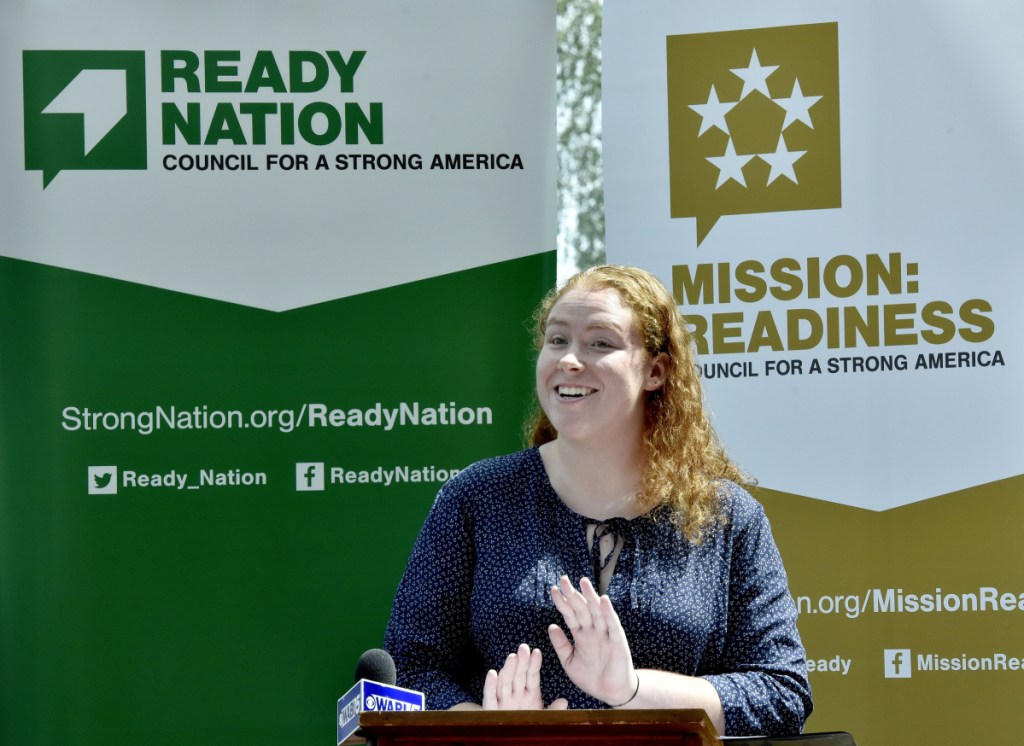By 2020, 66 percent of the jobs in Maine will require some form of postsecondary education. But right now, only 43 percent of working-age Mainers have the necessary credentials for this work.
Those are the numbers cited in a new research brief from ReadyNation and Mission: Readiness.
Those numbers are bad for business.
A gap in qualified workers of this size means trouble for Maine. Not only does it indicate that Maine businesses will face a less-productive, less-competitive workforce to fill their employer needs, it means many hard-working Mainers won’t have access to the sorts of jobs necessary for living and raising a family here in our state.
Certain careers, especially in fields related to STEM (science, technology, engineering and math), are expected to have particularly severe skills gaps. These include nurses, accountants and auditors, computer systems analysts, electricians, mechanics, welders, computer programmers, software developers, and dental hygienists — just to name a few.
Maine’s skills gaps affect a variety of professions, many of which are attainable through two-year or technical training.
As the leaders of two organizations with missions to strengthen the business community, I do not take these figures lightly. That’s why I recently joined fellow community leaders in business and education at Thomas College in Waterville to promote innovation and partnerships that can increase both access to and affordability of postsecondary education here in Maine. Together, we are working to ensure that Maine achieves its goal of increasing the percentage of adults who have a credential to 60 percent by 2025.
Why focus on credentials? Because attaining a credential doesn’t just benefit employers, the overall workforce, and the economy — it benefits the individual student as well. Studies have shown that a postsecondary credential leads to higher wages and more steady employment.
We chose to visit Thomas College because it is a shining example of how education facilities create opportunity and mitigate the skills gap facing our state. Specifically, the college’s “Engage, Develop, Guide, Empower” (EDGE) program gives students an intensive early experience that prepares them for and helps them adjust to the rigors of college.
Just because a student enrolls in a postsecondary opportunity does not mean he or she is prepared to finish it successfully, or to achieve necessary credentials for entering the job market. The EDGE program is designed to help students, especially first generation college students, acclimate to life at Thomas, succeed academically, learn good habits, and acquire skills that will serve them when they join the workforce.
The EDGE Program begins with a 10-day, early-start session prior to the beginning of the fall term. This includes an intensive course that counts three credits toward graduation requirements. As part of the program, EDGE students receive a book voucher to help alleviate the cost of course textbooks during their entire freshman year.
During the school year, EDGE continues to be an important source of support for students. EDGE helps students manage their time, set goals, learn the basic parameters of college life, and take on new challenges and leadership roles. One-on-one academic coaching through the Student Success Center helps students to stay on track in classes, maintain GPA and scholarship requirements, take advantage of resources at Thomas, and overcome obstacles to personal and academic success.
I was especially pleased to learn from Thomas College President Laurie Lachance that EDGE students are more likely than their peers to stay in school, graduate, and enter the workforce after graduation.
Maine employers are counting on postsecondary institutions like Thomas College to help ensure that members of our future workforce are achieving credentials of quality, so that these students are adequately prepared for family-sustaining, in-demand careers.
That helps us reach our goal of ensuring the percentage of Mainers who earn a valued credential reaches 60 percent. More importantly, it helps students find individual success while helping us build the collective success of our workforce, our economy, and our state.
Kimberly Lindlof is president and CEO of the Mid-Maine Chamber of Commerce and executive director of the Central Maine Growth Council.
Send questions/comments to the editors.



Success. Please wait for the page to reload. If the page does not reload within 5 seconds, please refresh the page.
Enter your email and password to access comments.
Hi, to comment on stories you must . This profile is in addition to your subscription and website login.
Already have a commenting profile? .
Invalid username/password.
Please check your email to confirm and complete your registration.
Only subscribers are eligible to post comments. Please subscribe or login first for digital access. Here’s why.
Use the form below to reset your password. When you've submitted your account email, we will send an email with a reset code.